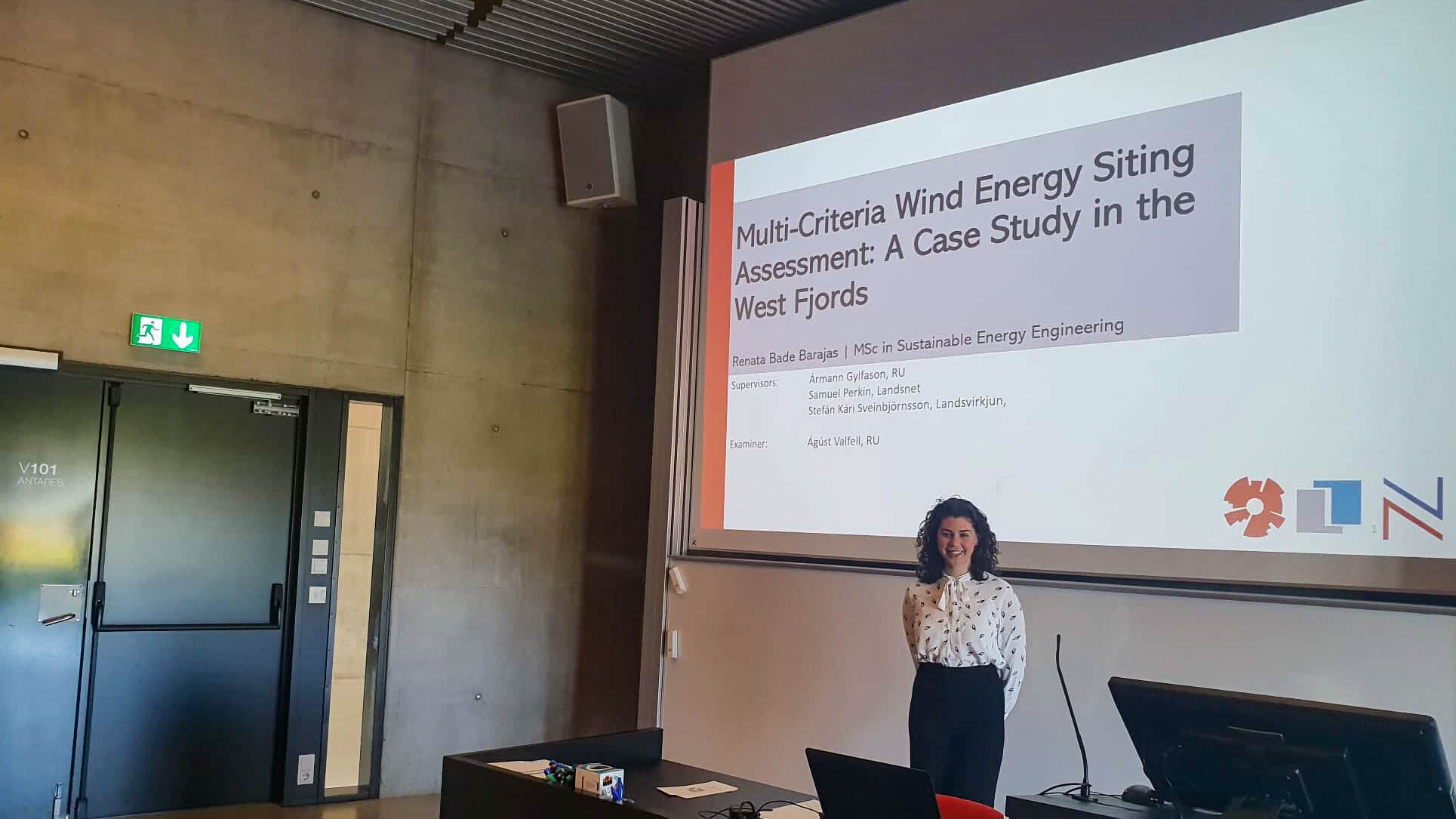MSc Thesis: Multi-criteria wind energy siting assessment - A case study in the West Fjords
REYKJAVIK, May 20 - MSc in Sustainable Energy Engineering candidate, Renata Bade Barajas, successfully defended her master's thesis where she performed a multi-criteria wind energy siting assessment case study in the West Fjords. Renata's work was supervised by Ármann Gylfason from Reykjavik University, Samuel Perkin from Landsnet, and Stefán Kári Sveinbjörnsson from Landsvirkjun.

As Renata explains, visualising data through maps may aid in the strategic implementation of wind energy. Strategic implementation refers to holistic, multi-faceted site selection that addresses the common issues associated with wind energy generation. Currently, siting methods emphasise cost and prediction of power production. In her research, Renata expanded on state-of-the-art methodologies by addressing the effects of power generation on the transmission system and displaying results in user-friendly visuals.
Her research identified locations best suited for wind energy implementation in the West Fjords of Iceland based on eight criteria: diesel use, electricity use, population size, predicted power, icing, maximum potential generation input, expected power losses, and cost. This multi-criteria assessment method was used to systematically determine ideal wind energy locations in the West Fjords. A sensitivity analysis was also conducted to evaluate the impact of the various input variables on the cumulative score used for site selection.
The study found that the Southeastern part of the West Fjords is best suited for developing wind energy when all input variables are weighted equally. After conducting her multi-criteria assessment, Renata recommended that a holistic study, like the one she performed, be first performed to identify a set of high-value regions which may then be the focus of future feasibility studies.
Congratulations Renata on an excellent thesis defence!
